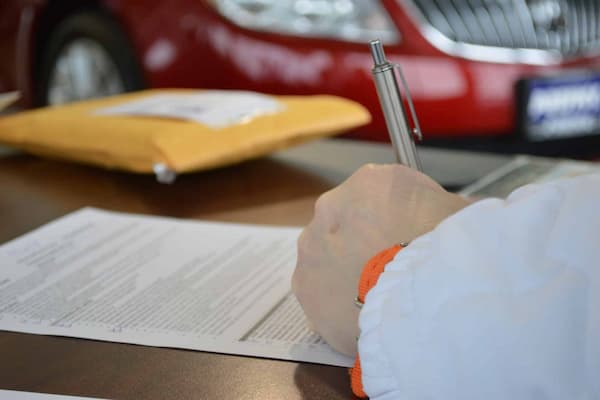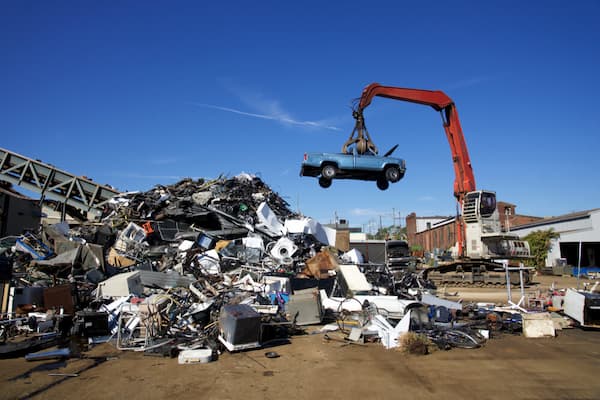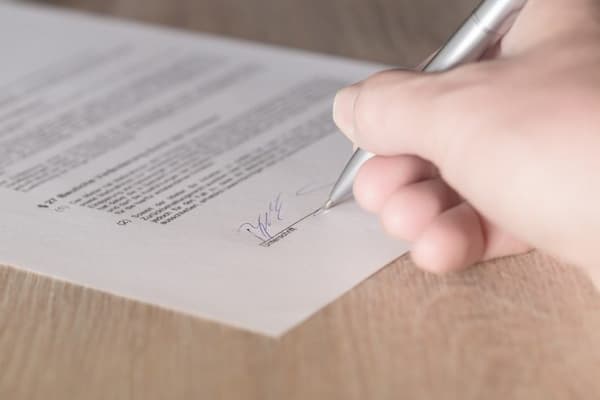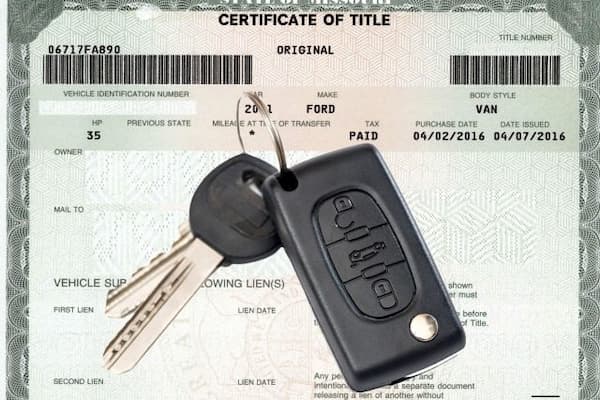Knowing what happens to the title is crucial when you junk a car. This piece of paper proves you own the car. You wonder why it matters once the car turns into scrap.
Well, handling the title right ensures you’re free from any future issues related to the vehicle. It’s not just about getting rid of an old car; it’s about doing it correctly to avoid problems later.
This article explains what happens to the title when you junk a car and everything in between. Let’s get into the discussion.
Contents
Title Transfer Process

The title transfer process when junking a car is a key step to ensure everything is legal and tidy. Here’s the title transfer procedure in 3 steps:
Initiating Transfer
The first big step is transferring the title when you decide to junk your car. This means you give the legal rights of your car to the junkyard or the buyer.
It’s a key step to ensure you’re no longer liable for the car. Here’s how you start:
- Contact the Buyer: First, contact the junkyard or the person buying your junk car. Let them know you’re ready to move forward.
- Set a Date: Agree on a date to hand over the car and its title. This is important to plan ahead.
- Prepare the Title: Make sure you have the car’s title ready. It’s a document that proves you own the car.
Required Documents
To transfer the title, you need some specific papers. Here’s a list of 4 things that you usually need:
- The Car’s Title: This is the most important. It should have your name on it.
- Identification: A valid ID, like a driver’s license, is necessary. It proves you are who you say you are.
- Bill of Sale: Sometimes, you also need a bill of sale. This is a receipt showing the sale of your car.
- Release of Liability: This form tells the state you no longer own the car. It protects you if the car gets in trouble later.
State Regulations
Every state has its own rules for junking a car. Here’s what you usually see:
- Notify the DMV: Many states require you to tell the Department of Motor Vehicles (DMV) about the sale. This keeps records straight.
- Surrender the Plates: You must return your car’s license plates in some places.
- Special Forms: Some states have extra forms for junking a car. Check with your local DMV to know what you need.
Title And Junkyards

When you finally say goodbye to your car, sending it to a junkyard is often the most efficient option. Let’s navigate the paperwork path smoothly.
Selling To Junkyards
When you decide to sell your car to a junkyard, you first need to find a reliable place. Look for a junkyard that has good reviews and is known for fair deals.
Once you pick a junkyard, call them or visit their website. They will ask about your car’s make, model, and condition. Be honest! This helps them give you the best price.
After they give you an offer and you agree, it’s time to prepare your car. Remove all your stuff from it. Also, take off the license plates. You will need these plates later to cancel your car registration.
Next, arrange for the car to get to the junkyard. Some junkyards will come and pick up your car for free.
Others charge a fee, or you can drive the car there yourself. Make sure you know this before you agree to sell.
Title Verification
Junkyards are just as cautious as you are! They don’t want a stolen car or one with legal baggage. So, once you present the title, they’ll likely:
- Check for authenticity: They’ll verify the title’s legitimacy with the DMV to ensure it’s not fake or tampered with.
- Look for liens: A lien is like a claim on your car, usually from a bank or loan company. When your car has a lien, the junkyard will not be able to buy it unless the lien is paid off first.
Payment And Title
Assuming everything checks out, it’s time for the sweet sound of cash (or a check)! Once the junkyard accepts your car and the title, they’ll:
- Pay you the agreed-upon price: No sneaky bait-and-switch here! The price was decided, and the junkyard will stick to it.
- Finalize the title transfer: They’ll complete the necessary paperwork on the title, officially making the car theirs. Remember to keep your copy of the signed title as proof of the sale.
Missing Or Lost Titles

Let’s navigate the tricky terrain of lost titles so you can get that rusty chariot to its final resting place.
Lost Title Situations
Before embarking on a quest for your missing title, consider the possible scenarios:
- Hidden in plain sight: Maybe it’s hiding in a forgotten desk drawer or buried under a mountain of bills (we’ve all been there!). Double-check your usual storage spots and give your memory a good jog.
- Accidental adventurer: Did it hitch a ride in your old purse or backpack and get lost on your latest travels? Retrace your steps and check with the businesses you visited.
- Mysteriously vanished: Perhaps a mischievous gremlin (or the washing machine) got the better of it. When it’s truly gone, don’t fret; we have solutions!
Duplicate Title Process
Breathe easy; even a missing title doesn’t mean your junkyard dreams are dashed. You can apply for a duplicate title through your state’s Department of Motor Vehicles (DMV). Here’s the general roadmap:
- Gather evidence: Proof of vehicle ownership, like registration documents, insurance papers, or purchase receipts, can be helpful.
- Fill out the application: Contact your DMV for the required forms and fees.
- Pay the fees: Don’t let a few dollars be the roadblock! Follow the DMV’s instructions for payment.
- Wait patiently: Processing times can vary, so sit tight and channel your inner detective skills to crack the mystery of the missing title.
Impact On Junking
The junkyard awaits once you have that shiny new duplicate title in hand! However, be prepared for a few potential bumps in the road:
- Verification delays: Junkyards take extra time to verify the duplicate title’s authenticity with the DMV. Patience is key!
- Lower price: Some junkyards offer a slightly lower price for cars without the original title. Negotiation skills come in handy here.
- Extra paperwork: Be ready to provide additional documentation to prove ownership and satisfy the junkyard’s requirements.
Legal Considerations

While junking your car seems straightforward, some essential legal aspects must be remembered. Let’s explore these 3 considerations to ensure a smooth and hassle-free junkyard experience.
Legal Responsibilities
Just like any other transaction, junking a car comes with responsibilities. Remember, you’re still the car’s owner until the title is officially transferred. So, buckle up for these 3 key points:
- Accurate information: Be truthful and provide accurate details about the car’s condition and ownership. Misrepresentation can lead to legal consequences.
- Proper documentation: Have your title and any other required paperwork readily available. A missing title requires extra steps, but don’t attempt to forge documents!
- Lien awareness: When your car has a lien, settle it before junking. Selling a car with an outstanding lien is illegal and can get you into hot water.
Fraud Prevention
Not all junkyards are created equal. Unfortunately, some unscrupulous operators try to exploit unsuspecting car owners. Be on the lookout for these red flags:
- Unusually high prices: When a junkyard offers significantly more than others, it is a scam. Do your research and compare prices before accepting.
- Pressured transactions: Don’t let anyone rush you into signing anything or making hasty decisions. Take your time, ask questions, and feel comfortable with the process.
- Shady paperwork: Be wary of incomplete or unclear paperwork. Ensure you understand everything you’re signing and get copies for your records.
State-Specific Laws
Vehicle disposal laws vary across states, so make sure you’re familiar with the specific regulations in your area. Here are 3 key areas to check:
- Title transfer procedures: Each state has its own process for transferring car titles. Follow the DMV’s guidelines to ensure a smooth and legal transfer.
- Emission control requirements: Some states have specific rules regarding the disposal of cars with certain emission control systems. Check with your DMV to avoid any environmental violations.
- Abandoned vehicle laws: Leaving your car at a junkyard without proper procedures is considered abandonment and incurs penalties. Make sure you follow the junkyard’s guidelines and obtain any necessary paperwork.
FAQs

1. What Is The Process For Transferring A Junk Car Title?
First, sign the title as the seller to transfer a junk car title. Then, fill in the buyer’s info and price. Next, remove your license plates.
Finally, give the title to the buyer, usually a junkyard, and report the sale to your DMV. Simple and quick!
2. Do Junkyards Require A Title For Car Purchases?
Yes, most junkyards need a title to buy your car. It’s legal proof you own the car. Always bring your title when you sell your car to a junkyard. This ensures the sale is legal, and you won’t have problems later.
3. How To Handle A Lost Title When Junking A Car?
To handle a lost title when junking a car, first, get a duplicate title from your local DMV. Fill out the necessary forms and pay a small fee. Once you get the new title, you can legally junk your car with no worries.
What Happens To The Title When You Junk A Car: Conclusion
When you junk your car, the process of handling the title is straightforward. You need to transfer the title to the junkyard or recycling center. This step is crucial because it legally shows you no longer own the car.
By doing this, you avoid future liability for the vehicle. Always check with your local DMV for any specific rules in your area.
Junking your car can be smooth and worry-free when you know what to do with the title.


